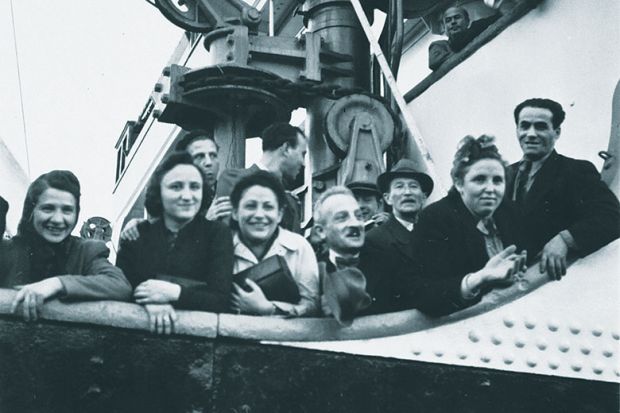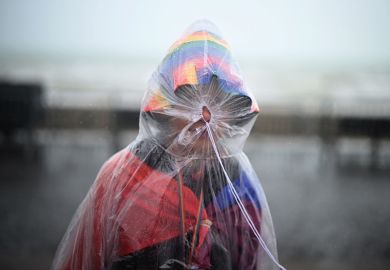In June 2014, Hans Stecher – the last of 600 Jewish refugees who escaped the Nazis to safety in Trinidad – died in his home aged 90. He was 14 years old when he and his parents fled Vienna. This was in 1938, just after the Anschluss – the annexation of Austria by Germany – and almost the last chance for any Jew to escape the devastation of the Holocaust. Years later, Stecher recalled his youthful excitement about getting off the boat in “a tropical country”, calling it “a dream come true”. For his parents, however, who were forced to leave behind not just their home and business but all they knew in their beloved Vienna, “everything was strange and unfamiliar and somewhat frightening”.
The Caribbean might seem an unlikely destination for Jewish refugees from the Nazis. It was, however, one of the few places within the British Empire where it was possible to enter without a visa or a landing permit. Most of the Jews wanted to reach Canada or the US but were refused entry. Instead, they were forced to go wherever they could. The JDC (the American Joint Jewish Distribution Committee) called the ships carrying the Jews “Floating No Man’s Lands”, as they so often went from port to port before they found anyone willing to accept them.
In this rich and resonant study, Joanna Newman recounts the little-known story of this Jewish exodus to the British West Indies from the 1930s to the end of the war. Using an extraordinary range of original sources – from the minutes of the Colonial Office to Trinidadian calypsos – she pieces together in shocking detail the xenophobia and nightmarish bureaucracy that Stecher and his family endured and that left many more trapped in German-occupied Europe.
Through a vivid combination of letters, memoirs and interviews, we learn of the tremendous efforts the newly arrived Jews went to in an attempt to rebuild their shattered lives and recreate something of the Europe they had left behind. In an unnerving echo of contemporary responses to refugees, we also see how the resident populations responded with hostility and suspicion to these alien interlopers competing for their housing and jobs and undercutting their businesses. With the outbreak of war in 1939, all the migrants’ efforts to make new lives came to an abrupt halt. The Caribbean authorities, taking their lead from the British, refused to accept any more Jewish refugees, shut down Jewish businesses, branded them “enemy aliens” and imprisoned them in specially designated camps.
Anyone reading this book will be haunted by the extraordinary resilience of the “Floating No Man’s Lands” throughout history and the parallels between the Jewish refugees desperately seeking somewhere to land and the crowded migrant boats stranded in the Mediterranean today. Newman is refreshingly unafraid of politicising her history, and her work is perhaps most importantly a call to arms to respond more effectively to the appalling refugee crisis we are facing now.
Zoë Waxman is lecturer in modern Jewish history at the University of Oxford and author of Women in the Holocaust: A Feminist History (2017).
Nearly the New World: The British West Indies and the Escape from Nazism, 1939-1945
By Joanna Newman
Berghahn, 320pp, £24.00
ISBN 9781789206494
Published 1 October 2019
Register to continue
Why register?
- Registration is free and only takes a moment
- Once registered, you can read 3 articles a month
- Sign up for our newsletter
Subscribe
Or subscribe for unlimited access to:
- Unlimited access to news, views, insights & reviews
- Digital editions
- Digital access to THE’s university and college rankings analysis
Already registered or a current subscriber? Login








